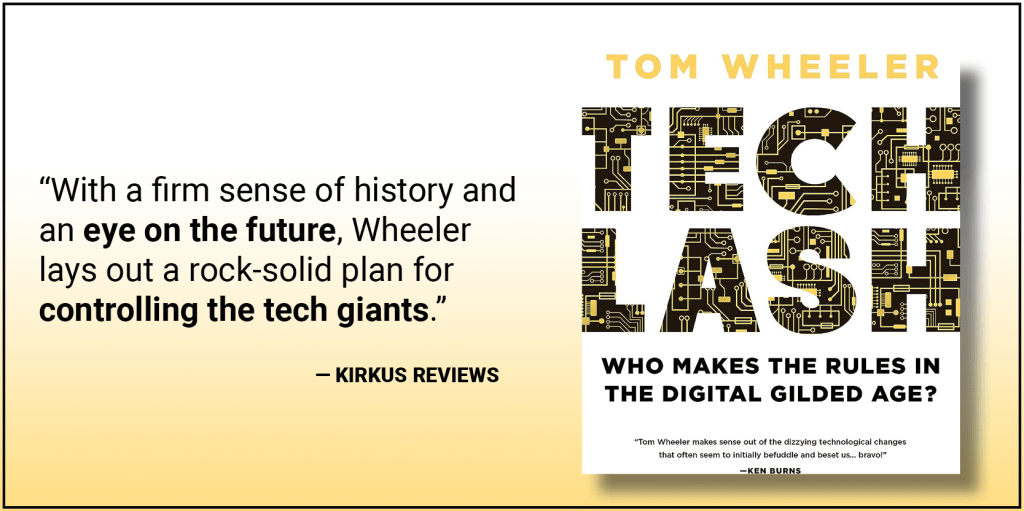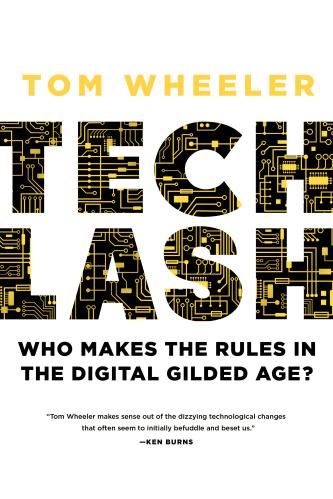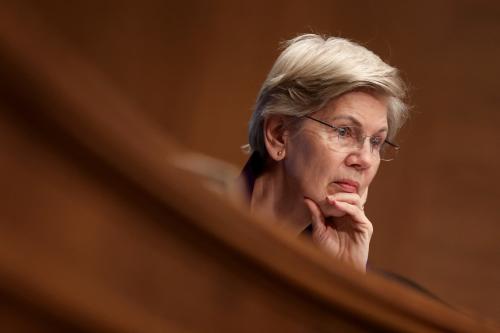In 1991, the introduction of the World Wide Web transformed the internet from a network of interconnected computers to an information system utilizing that network. In the intervening three decades, a handful of digital platform companies built upon that foundation to dominate internet services and soar to the top of the list of the world’s most valuable companies. Apple, Microsoft, Alphabet (Google), and Amazon are the four most valuable American companies and four of the top five most valuable companies in the world (Meta Platforms, the renamed Facebook, is number 10).
In a short period of time, these companies—collectively known as Big Tech—have leapt from an innovator’s idea to marketplace dominance and great wealth.
Clearly, Big Tech has won when:
- Apple controls 55% of U.S. smartphone sales and the App Store contains 2.18 million apps to download to those iPhones.
- Microsoft controls 70% of the world’s computer operating systems with 6 billion computers running Windows.
- Alphabet’s Android mobile operating system controls a 71% share of the global smartphone market while 92% of all search queries are performed on Google.
- Amazon has 39% of the U.S. e-commerce market, delivering over 4.75 billion packages per year in the U.S.
- Meta’s platforms (Facebook, Instagram, WhatsApp, and Messenger) each have over one billion users with 77% of global internet users using at least one Meta product.
Consumers have paid a price for this success. Yes, wonderous new products and services have been made available—but at what cost? What was formerly private personal information has been siphoned off by these companies (often without permission) to become a corporate asset. Control of that asset allows the companies to achieve and maintain market dominance and crush competition. The decision by those engaged in social media to curate online information for engagement rather than veracity has hammered truth and trust and threatened democratic processes.
The public knows who has won. A majority of Americans—of both political parties—feel Big Tech has too much power and influence.
Spoiler alert! We have been here before. Many of the abuses of today’s internet barons echo behavior by the industrial barons in the late 19th and early 20th centuries. In that instance, the federal government finally stepped up to constrain industrial abuses with new antitrust and consumer protection laws. Whether 21st century policymakers will similarly step up—especially as artificial intelligence becomes pervasive—is the challenge of the internet era.
Mark Twain dubbed the earlier era the Gilded Age. Not a “golden age,” but an age “gilded” with a thin layer of gold to make it appear more splendid than the reality. The gilding of new products covered the effects of new technology-based industrialization that destroyed local businesses, built monopolies, created great wealth, and accelerated the pace of life. Consumer harm abounded in unsafe products and worker exploitation. Fake news was rampant.
Sound familiar? The absence of behavioral rules for new technology allowed Gilded Age companies to attack individual rights and the public interest. That was until We the People, acting through elected representatives, rose. Industrial era regulation created a countervailing force that protected consumers and competition while building the world’s most vibrant capitalist economy.
The time has come for a similar rebalancing.
In both the original and the digital Gilded Age, innovators made their own rules for the new economy. Mark Zuckerberg’s “Move fast and break things” mantra is hauntingly similar to Gilded Age financier J. P. Morgan’s observation, “A certain number of men who own property can do what they like with it.” Both deliver the message, “We make the rules.”
The “things” being broken in Zuckerberg’s mantra aren’t physical items, but the behavioral expectations that had provided stability for over a century. The reason to “move fast” was to get new behaviors ingrained in daily life before anyone understood the consequences.
Thus far, the people’s elected representatives have allowed Big Tech to make the rules to advantage their private interests. The time is ripe, however, to reassert the public interest. We may have been naïve in our understanding of the power of the platforms to manipulate digital information to manipulate us, but we can be naïve no longer.
Such a reassertion of the public interest does not mean the reimposition of the same kind of regulation created to protect against industrial abuse. The pace of technological change will not permit the rigid and sclerotic regulatory micromanagement of the past.
The industrial age was all about replacing and/or augmenting human physical power. The digital Gilded Age is all about replacing and/or augmenting human cognitive power. An ever-evolving digital economy that pairs digital information to create new products cannot be governed by rules developed for a slower economy built on production lines of hard assets.
The rebalancing of consumer-corporate relations in the digital Gilded Age demands policies that are as innovative as the companies themselves. Bolting new responsibilities on to industrial era agencies looks backwards at a time that calls for looking forward. Entrepreneurial policy thinking means adopting ideas such as a focused expert digital regulatory commission that protects consumers while promoting innovation. Such oversight should eschew rigid industrial-era micromanagement in favor of agile risk management in which the government operates similarly to those it regulates.
The original Gilded Age stimulated the creation of never-before-seen regulatory structures. The digital Gilded Age’s never-before-seen behaviors demand a similarly creative rebalancing.
Read more from Wheeler’s new book, Techlash:
-
Acknowledgements and disclosures
Microsoft, Google, Amazon, and Meta are general, unrestricted donors to the Brookings Institution. The findings, interpretations, and conclusions posted in this piece are solely those of the author and are not influenced by any donation.
The Brookings Institution is committed to quality, independence, and impact.
We are supported by a diverse array of funders. In line with our values and policies, each Brookings publication represents the sole views of its author(s).








Commentary
Big Tech won. Now what?
October 16, 2023